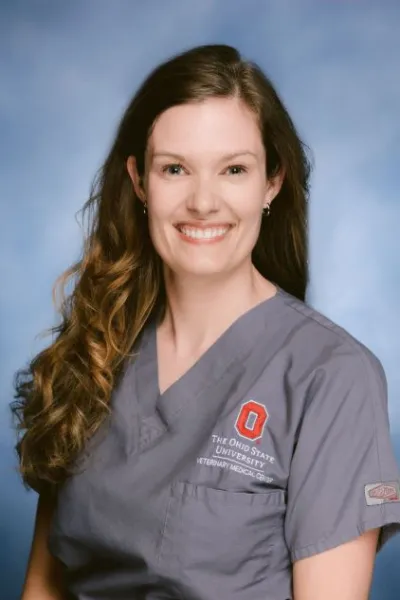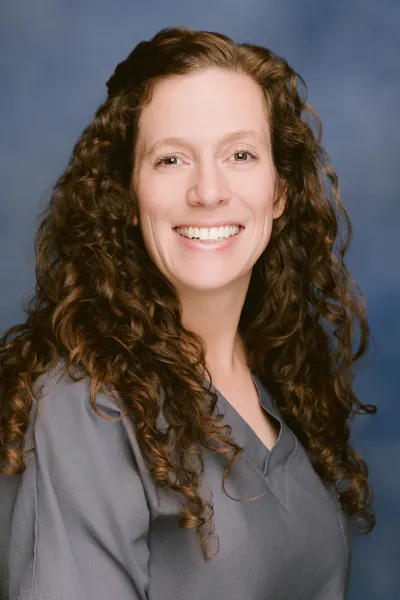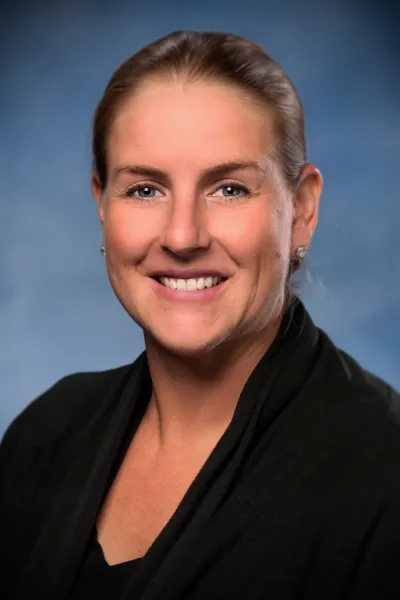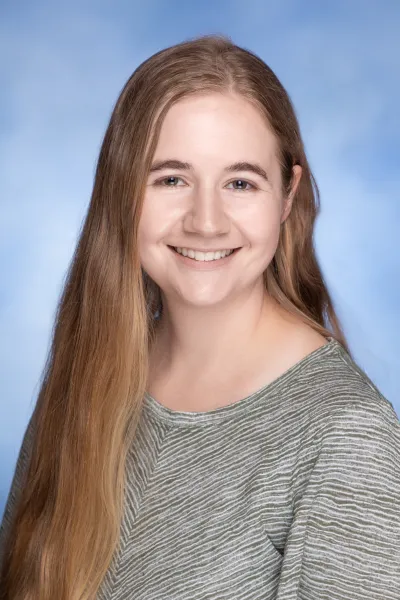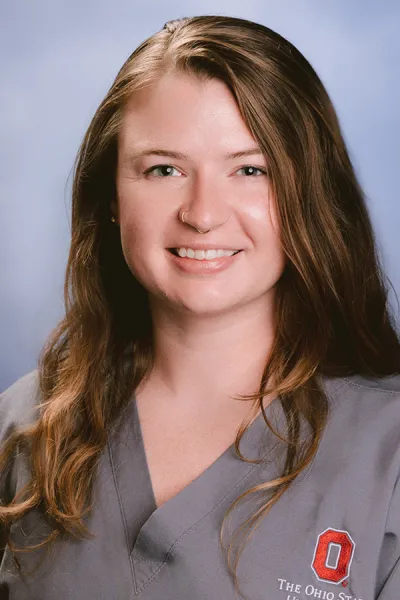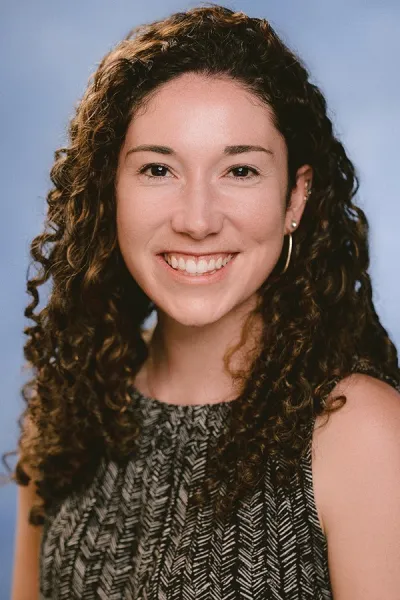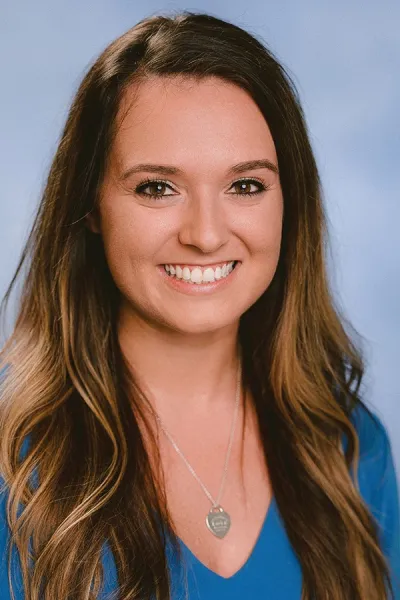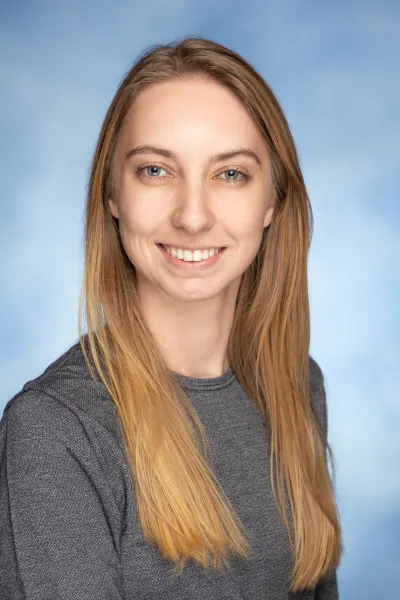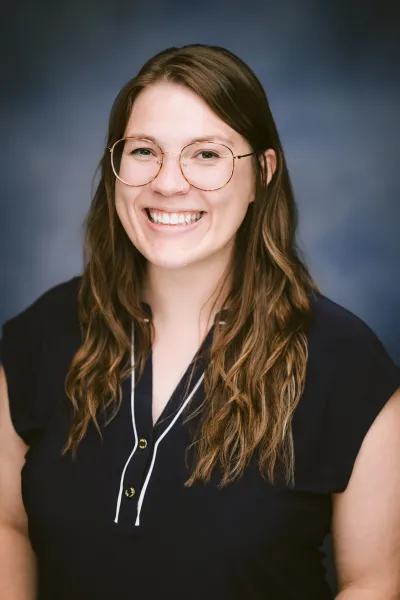Small Animal Emergency
& Critical Care Residency
Additional Residency Resources learn more about our veterinary health system
Objectives
- Develop comprehensive, state-of-the-art expertise and clinical proficiency in small animal emergency/critical care medicine;
- Satisfy the criteria necessary to qualify for Board Certification, and to prepare the resident for successful completion of the American College of Emergency/Critical Care Certification Examination;
- Prepare for future career goals of teaching, clinical research, scientific publication, or specialized practice; and,
- Attain the Master of Science degree in a specific area of research endeavor.
Prerequisites and Applications
- All potential residents must meet the minimum requirements and qualifications (see Residency Program Handbook, CVM Graduate Program Handbook and Graduate School Handbook.
- Applicants must be either U.S. citizens or permanent residents of the U.S. the Ohio State University cannot sponsor or process F, J, or H-1B visa applications for resident positions. We also cannot accept TN visas. Successful applicants must be available to report to The Ohio State University Department of Veterinary Clinical Sciences no later than the scheduled beginning of the program.
- Applicants must be graduates of an AVMA-recognized College or School of Veterinary Medicine and have completed a one-year rotating internship or acceptable equivalent clinical experience.
- All requirements must be met to hold and maintain a limited license to practice Veterinary medicine in the State of Ohio – click here for information on licensure requirements.
- Currently admission requirements include:
- a minimum 3.0 GPA for all undergraduate coursework
- a minimum 3.0 GPA for professional (veterinary degree) studies;
- a minimum 3.3 GPA for all graduate coursework;
Employment and Benefits
- Salary
- Health insurance
- Travel allowance
- Personal + Professional days leave
- External consultation and employment
- Licensure
- Tuition Assistance
Orientation
- During the first week at the commencement of the residency program, all incoming residents participate in a comprehensive orientation program (see Residency Program Handbook) to introduce them to the department, college and university, to complete necessary documentation, and to facilitate integration into our program and activities. During this period time to shadow with faculty on the E/CC service will also be afforded to allow the resident to become accustomed to the day-to-day functioning and familiar with the policies and procedures of the service.
Advisors and Mentoring
- Each resident is assigned a clinical advisor at the beginning of the program. The advisor can be changed according to the individual needs and interests of the resident.
- Academic advisor: A temporary academic advisor will be appointed soon after arrival to help guide initial consideration of research options and graduate coursework. Once the area of research is decided then a principal academic advisor will be determined.
- Thesis committee (for residents electing to complete a thesis Masters): once the specific area of research is selected, an Advisory committee will be formed to provide advice in the development, execution and to completion of a specific research project. Typically, the Advisory committee serves as the Examination committee for the thesis defense. These committees must consist of at least 3 graduate faculty members.
- Mentoring: Case management is carried out with the guidance and collaboration of experienced faculty who are recognized experts in their respective fields.
Clinical Service Responsibilities
- The program is designed to ensure development of clinical competence in a broad range of specialties. Rotations will be organized to fulfill the requirements of immersion through the core and elective specialty rotations as set out by the current ACVECC training guidelines and will be take place over the 3-year program.
- Residents provide in-hospital and on-call backup support for the hospital interns who participate in the operation of 24-hour emergency service 7 days a week.
- Clinical rotations facilitate development of clinical proficiency, clinical skills, and knowledge through exposure to a wide variety of cases at all levels of complexity. This goal is facilitated by location of the teaching hospital in a large metropolitan area that provides a rich variety of case material as well as a referral base that includes Ohio, Indiana, Pennsylvania, Kentucky, West Virginia, and Michigan.
- Case management is carried out with the guidance and collaboration of experienced faculty who are recognized experts in their respective fields. State-of-the-art equipment and facilities are available to develop technical expertise in diagnostic and therapeutic procedures.
- According to ACVECC guidelines, clinical service should include the following:
- Immersion Requirements: 129 weeks broken down into Emergency/Critical Care Immersion with ACVECC Supervision (72 weeks); Immersion in Specialty Practice with Specialty Supervision (22 weeks); and, Independent Study or Practice (35 weeks).
- Experience Requirements: observation and participation in specific clinical problems, procedures or cases as determined and listed by the Residency Training Committee of ACVECC. It is up to the Resident, with the support of their Mentor to ensure that all Experience requirements are met and logged within the required term of the Residency.
- Skills Requirements: a list of skills critical to the practice of emergency and critical care has been determined by the ACVECC and is available of their website. The Resident, with the support of their Mentor, will be able to ensure that all skills related to Emergency and Critical Care will be appropriately demonstrated and/or practiced.
- Training Benchmarks: tasks assigned during the year by the Residency Training Committee of ACVECC designed to reinforce and verify knowledge and/or skill of a Resident. ALL assigned Training Benchmarks must be completed, submitted, evaluated, and recorded by the Credentials Committee for the Resident to complete their requirements.
Teaching Responsibilities
- Teaching responsibilities include clinical teaching of fellow house officers (residents and interns) as well as senior veterinary students assigned to the Emergency Medicine and/or the Critical Care Medicine rotation, both part of the ECC service.
- Residents also participate in teaching small animal technical skills to junior veterinary students during laboratories.
- According to ACVECC guidelines:
All residents must document both 6 hours of didactic lecture and 6 hours of laboratory teaching on emergency and/or critical care topics to veterinary students, animal health technologists, faculty or veterinary audiences during their course of training. This teaching requirement CANNNOT be met in an informal setting such as Problem-Based Learning courses, student rounds, cage rounds, or lectures to lay audiences.
Educational Opportunities
- Numerous seminars, conferences, and journal clubs are available to residents.
- The Emergency/Critical Care service holds two weekly sessions devoted specifically to E/CC book and journal clubs as well as specialty board preparation. Both small animal and equine critical care faculty and residents attend these sessions. These sessions have been developed and approved as official graduate courses, with credit counting towards the MS degree requirements.
- A required weekly clinicopathologic conference provides an opportunity for residents to enrich their clinical problem-solving skills. Also requires biannual case presentations which serve to improve organization and public speaking.
- A comprehensive collection of graduate level courses in small animal medicine and surgery provides residents with relevant course material for partial fulfillment of the MS degree requirements.
Residents will be expected to attend the International Veterinary Emergency and Critical Care Symposium (IVECCS) in their 1st and 3rd year of residency. He or she will be expected to not attend in their 2nd year to provide service coverage during the conference. There will also be opportunity to attend the human Critical Care Medicine conference (CCM).
Graduate Program
- The resident has the option to enroll in a concurrent Master of Science program, and all residents are expected to maintain their coursework without compromising clinical responsibilities. Senior faculty and other residents on the rotation will maintain flexibility in scheduling so as to accommodate the required coursework.
- Residents in MS and PhD programs must successfully pass and complete 20 didactic graded credit hours of graduate courses and 10 non-didactic credit hours of graduate courses as a requirement for completion of their degree. Residents in MS programs must complete a minimum of 30 credits total. In the past, residents have fulfilled their didactic coursework requirements by the end of the 2nd year or early in the 3rd year of their programs.
- Original research or clinical investigation leading to scholarly publications is required by the department. Significant research leading to an MS thesis is standard for residents. Residents in the MS program can request for the non-thesis option after arrival; Residents can request a transfer to the non-thesis MSc program up until the end of the spring semester of their second year of a three-year residency program. Transfer to non-thesis research will be determined on a case by case basis at the beginning of the residency, based on the resident’s research interest and with guidelines from the Mentor. The magnitude of the project will be determined by which Masters option is selected. With either, original research or clinical investigation resulting in scholarly publication is required (also required for ACVECC credentials).
- The college's Council on Research reviews proposals and administers funds for research projects involving canine subjects. Opportunities also are available to collaborate on extramurally funded research projects with faculty in the Department of Veterinary Clinical Sciences, Department of Veterinary Biosciences, or in other departments on campus including the College of Medicine.
- To facilitate research opportunities, residents are given off-clinic time for personal enrichment during which they are free from scheduled ward duties and clinical case responsibilities. Enrichment time is provided to allow pursuit of course work, independent study, research, thesis writing, publication, and/or other elective endeavors. Total off-clinics time for research is afforded to residents in accordance with completion of either a non-thesis (12-18 weeks) or thesis Masters (24 weeks) off-clinic time.
Research and Scholarly Activity
- Publication requirement: Each resident must submit at least one scholarly paper to a refereed journal prior to completion of the residency program. This also helps to fulfill the publication requirement set forth the by ACVECC to meet credentialing criteria and qualify to sit for the specialty board exam.
- Each resident must present at least one formal paper at a state or national veterinary meeting or to the small animal faculty prior to completion of their program.
- Residents in the graduate program are expected to prepare and submit their thesis research for publication, if a thesis Masters program is selected.
Evaluations
- Department of Veterinary Clinical Sciences: Formal Resident Performance Evaluations are completed by January 15th and July 15th each year. Details of the nature and structure of these evaluations can be found in the Residency Program Handbook.
- A formal resident evaluation form (as adopted by the Graduate Studies Committee) is completed, presented to the resident for discussion. Once finalized the evaluation is distributed to the resident, Department Chair, Section Head and the Graduate Studies Committee Chair as a matter of record.
- ACVECC requires that an Annual Progress Report is submitted for each resident including a completed AVECC Annual Report form signed by the Resident and the Mentor; and, a completed Progress Report documenting Training Weeks and other requirements completed by the resident.
Specialty College Requirements
Board Certification
- We offer a comprehensive didactic and clinical training program that we believe provides excellent preparation for successful completion of the ACVECC board certifying examinations.
- It is important that our residents realize that although eventual board certification is clearly anticipated, our primary goal of our training program is to encourage and assist our residents in becoming highly skilled and expert emergency and critical care clinicians.
Expectations
- Given the nature of Emergency and Critical Care medicine, and the need to provide 24/7 emergency service, residents will be expected to participate when scheduled in evening, weekend and overnight duty for primary receiving, assisting with ventilation patients or providing back-up for emergency interns.
- Emergency/critical care places a very strong emphasis on teaching students and interns rotating through the service. Residents are expected to play an active roll in student and intern education through clinical case discussion, leading rounds discussions, and participation in techniques laboratories.
- The expectations for ECC residency will be cleared defined and specific Orientation materials will be provided shortly after the start of the residency.
Appendices
Outline of goals and expectations every year, draft biweekly schedule
Year 1 - 8 weeks of electives, 6 weeks off clinics, 38 weeks E/CC immersion. Time on E/CC emersion will be spent with 50% Mon-Fri day shift (primary Critical Care), 50% Mon-Fri evenings plus one weekend per month (primary Emergency). In the first year the resident will also be expected to develop a Master’s project and obtaining funding if required. The resident should also work on a smaller project (case report, retrospective, etc.) for journal submission to fulfill ACVECC requirement for publication.
Year 2 - 8 weeks of electives, 8 weeks off clinics, 36 weeks E/CC immersion. Time on E/CC will be split as above. Resident should complete execution and data acquisition for Master’s project during the second year, if required. In the case of a non-thesis Master’s project, the resident should complete execution and data acquisition for the resident’s research project.
Year 3 - 6 weeks of electives, 10 weeks off clinics, 36 weeks E/CC immersion. Time on E/CC will be split as above. Resident will write and defend Master’s thesis in fulfillment of residency requirement, if required. In the case of a non-thesis Master’s project, the resident should complete the manuscript and submit it to the thesis committee. Resident will also submit credentials to qualify to take boards after completion of the residency.
Updated 8/31/2022
Contact Us
For general inquiries, please contact the VCS Education Program Coordinator:
Chelsea Souder
VCS Education Program Coordinator
Phone: 614-688-0332
Email: Souder.60@osu.edu


